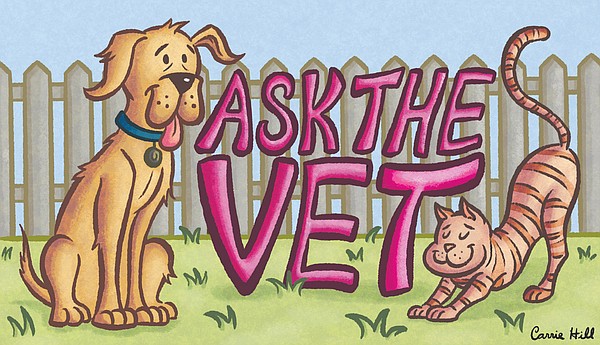- May 2, 2022
- No Comment
- 5 minutes read
ASK THE VET: Long fingernails harbor bacteria, endanger dog's tender tissues – Arkansas Online

Q: At my Yorkshire terrier’s recent wellness visit, we saw a new veterinarian, a woman with surprisingly long fingernails. My Yorkie needed to have her gland sacs emptied, as she often does, and I was afraid the vet’s long nails would hurt her, so I asked that someone else empty them. Was my request rude or out of place?
A: Not at all. Long nails can certainly cause discomfort during rectal exams. They may also make abdominal palpation uncomfortable for the pet.
As a veterinarian with short fingernails, I don’t understand how someone with long nails can reliably palpate a pet’s abdomen to detect an enlarged organ, mass or hernia, or identify swollen lymph nodes or enlarged thyroid glands.
In surgery, long fingernails can puncture surgical gloves, contaminating the sterile surgical site.
Many studies prove that long nails harbor more bacteria, viruses and yeast than short nails, even after hand scrubbing. When I see long fingernails on a healthcare provider, what concerns me most is the increased risk of spreading infection.
Moreover, research shows that human operating room nurses have more bacteria on their hands after completing their surgical hand scrubs if their nail polish is chipped or if the polish had been in place longer than four days.
Multiple studies also demonstrate that artificial nails are more likely to harbor bacteria, viruses and yeast than natural nails.
Of the many fingernail studies I read while researching your question, my favorite was the study of people with natural or artificial nails of various lengths whose hands were intentionally contaminated with either E. coli bacteria in raw ground beef or feline calicivirus in an artificial material. The volunteers washed with tap water, regular liquid soap, antibacterial liquid soap, alcohol-based hand sanitizer gel, regular liquid soap followed by alcohol gel, or regular liquid soap and a nailbrush.
Handwashing with liquid soap and a nailbrush turned out to be most effective at reducing bacterial and viral counts. This study also confirmed that people with long or artificial nails retained more bacteria and virus on their hands after washing than people with short or natural nails.
Q: I sometimes find my cat’s whiskers on the carpet, as though they’ve fallen out. He doesn’t scratch his muzzle, he still has whiskers, and his face looks normal. Should I be concerned?
A: Cats naturally shed their whiskers, just as they shed their fur. Like fur, the whiskers grow back according to their own shed/regrowth cycle. So, as long as your cat still has whiskers and isn’t scratching his face, there’s no need to worry.
Even when whiskers are cut off — by a youngster playing with scissors or a veterinarian treating a bite wound abscess on the cat’s face — the cat manages well without them, and the whiskers grow back.
Whiskers are specialized tactile hairs that help cats feel their way in dim light. Whiskers also detect air movement close to the face, which may warn of a nearby animal.
All carnivores and most other mammals sport whiskers, though they are best developed in nocturnal species such as cats.
Feline whiskers are so sensitive that many cats prefer to eat and drink from large-diameter bowls filled to the brim so their whiskers don’t come in contact with the side of the bowl.
Lee Pickett, VMD, practices companion animal medicine in North Carolina. Contact her at
[email protected]
Print Headline: Long nails tend to harbor more bacteria on average
Copyright © 2022, Arkansas Democrat-Gazette, Inc.
All rights reserved.
This document may not be reprinted without the express written permission of Arkansas Democrat-Gazette, Inc.
Material from the Associated Press is Copyright © 2022, Associated Press and may not be published, broadcast, rewritten, or redistributed. Associated Press text, photo, graphic, audio and/or video material shall not be published, broadcast, rewritten for broadcast or publication or redistributed directly or indirectly in any medium. Neither these AP materials nor any portion thereof may be stored in a computer except for personal and noncommercial use. The AP will not be held liable for any delays, inaccuracies, errors or omissions therefrom or in the transmission or delivery of all or any part thereof or for any damages arising from any of the foregoing. All rights reserved.

